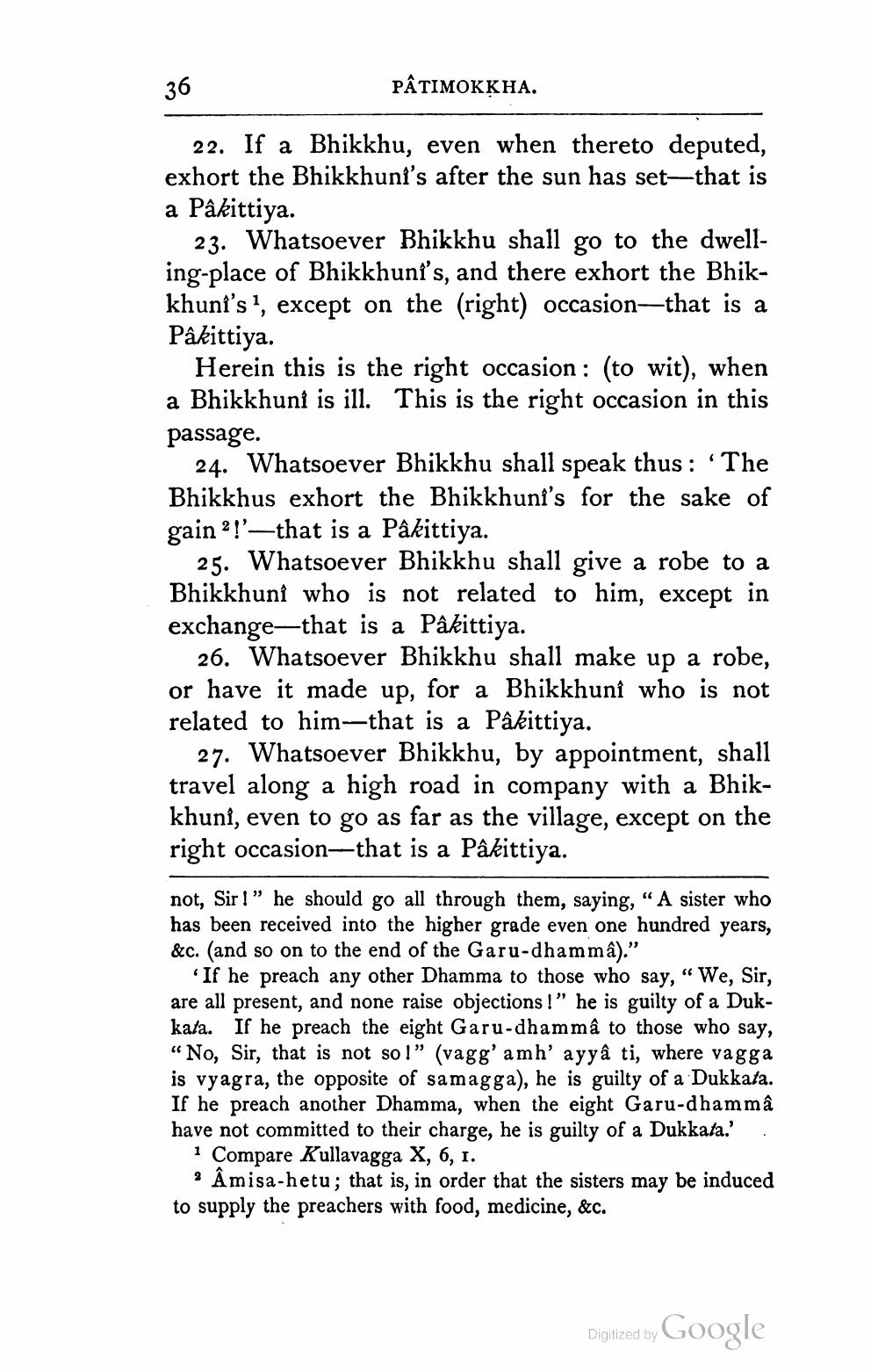________________
PÂTIMOKKHA.
22. If a Bhikkhu, even when thereto deputed, exhort the Bhikkhunt's after the sun has set-that is a Pâkittiya.
36
23. Whatsoever Bhikkhu shall go to the dwelling-place of Bhikkhunt's, and there exhort the Bhikkhunt's1, except on the (right) occasion—that is a Pâkittiya.
Herein this is the right occasion: (to wit), when a Bhikkhuni is ill. This is the right occasion in this passage.
24. Whatsoever Bhikkhu shall speak thus: 'The Bhikkhus exhort the Bhikkhunf's for the sake of gain !'-that is a Pâkittiya.
25. Whatsoever Bhikkhu shall give a robe to a Bhikkhunt who is not related to him, except in exchange-that is a Pâkittiya.
26. Whatsoever Bhikkhu shall make up a robe, or have it made up, for a Bhikkhuni who is not related to him-that is a Pâkittiya.
27. Whatsoever Bhikkhu, by appointment, shall travel along a high road in company with a Bhikkhuni, even to go as far as the village, except on the right occasion that is a Pâkittiya.
not, Sir!" he should go all through them, saying, "A sister who has been received into the higher grade even one hundred years, &c. (and so on to the end of the Garu-dhammâ)."
'If he preach any other Dhamma to those who say, "We, Sir, are all present, and none raise objections!" he is guilty of a Dukkata. If he preach the eight Garu-dhammâ to those who say, "No, Sir, that is not so!" (vagg' amh' ayyâ ti, where vagga is vyagra, the opposite of samagga), he is guilty of a Dukkata. If he preach another Dhamma, when the eight Garu-dhammâ have not committed to their charge, he is guilty of a Dukkata.'
1 Compare Kullavagga X, 6, 1.
2 Âmisa-hetu; that is, in order that the sisters may be induced to supply the preachers with food, medicine, &c.
Digitized by
Google




